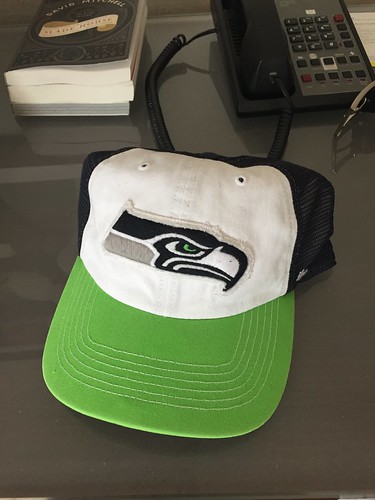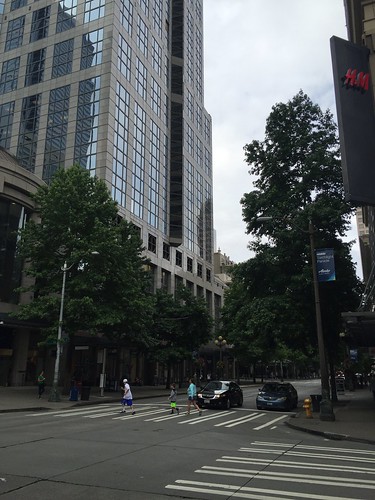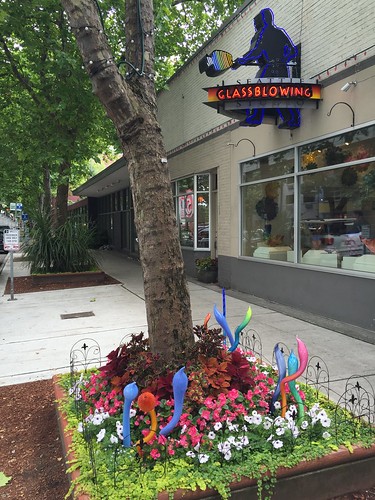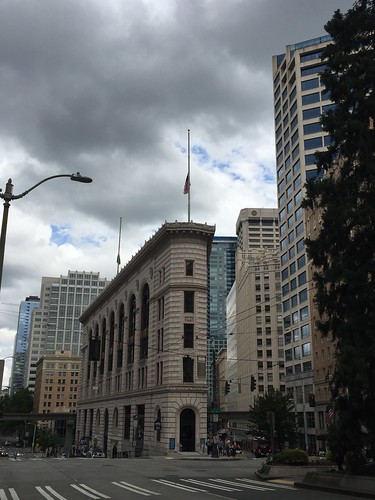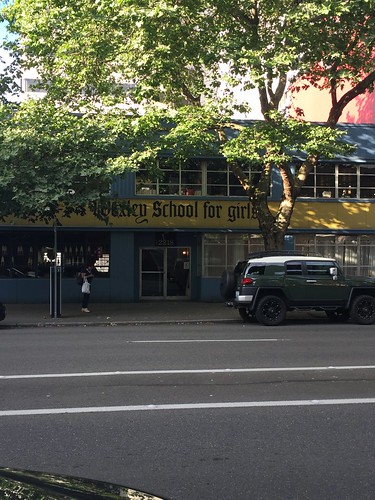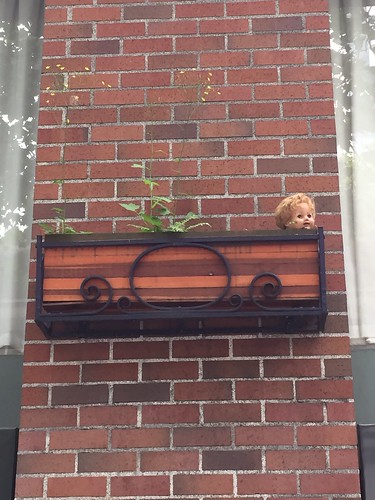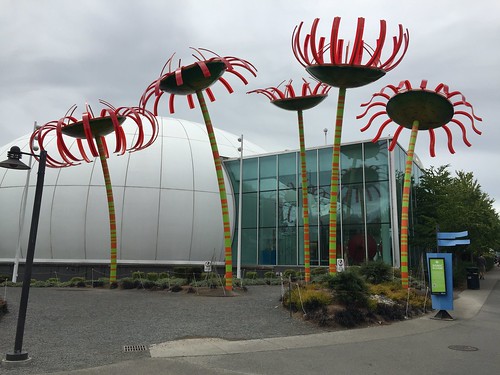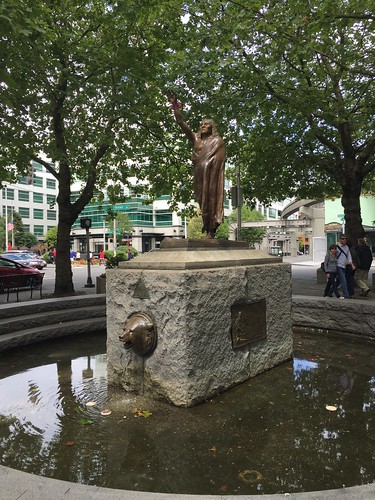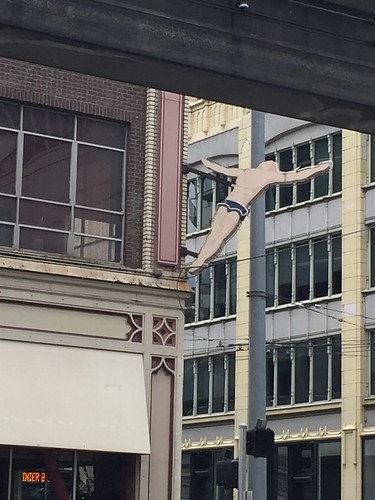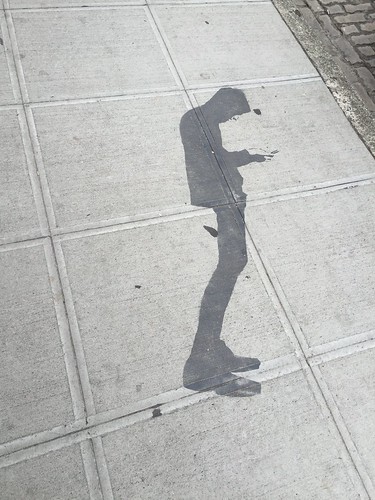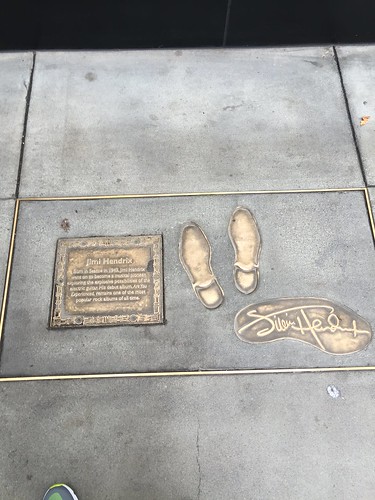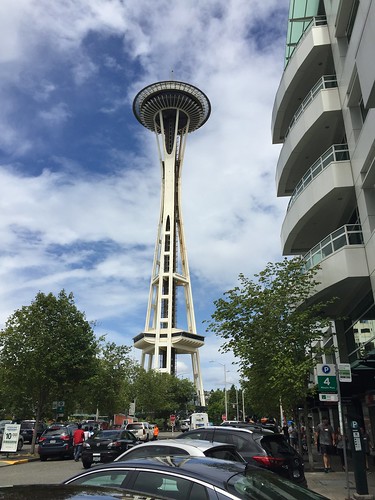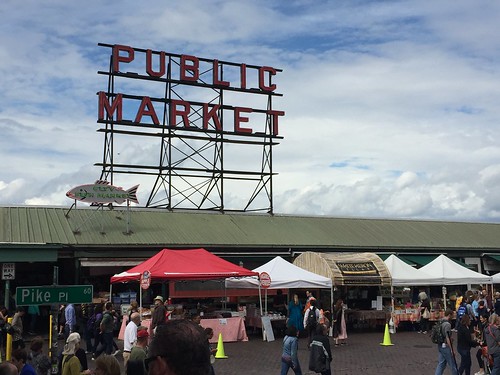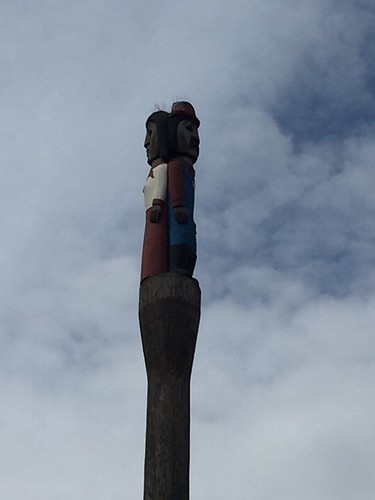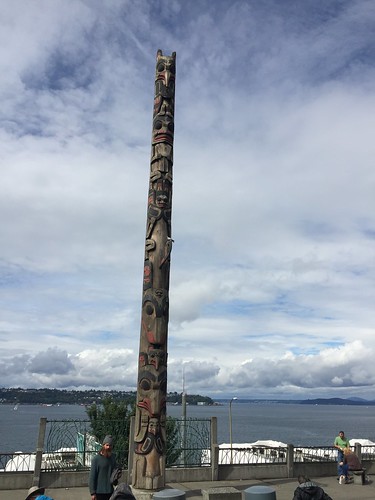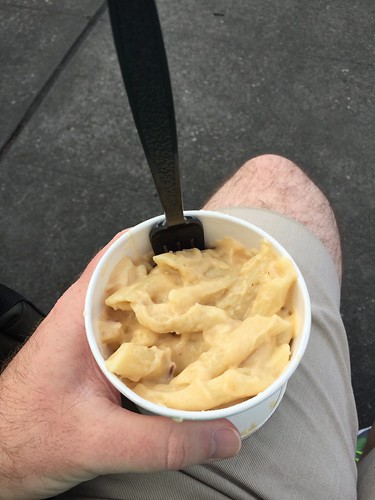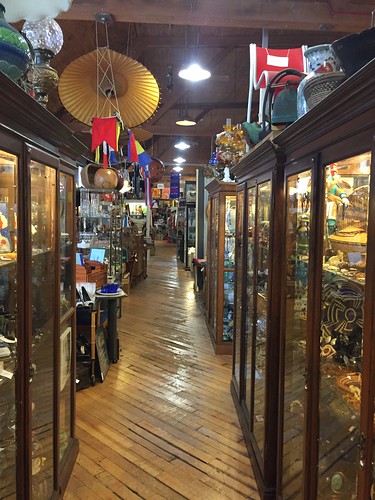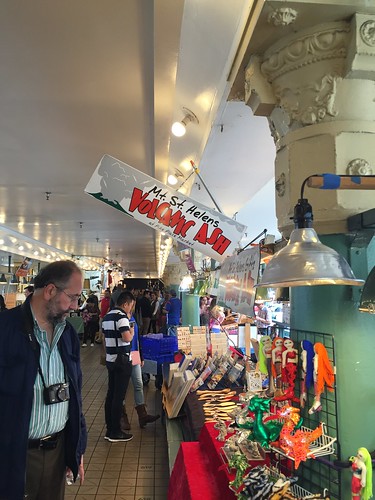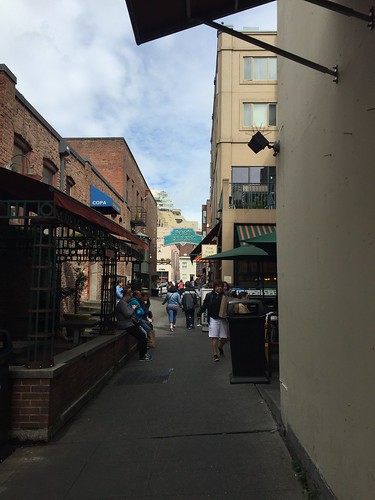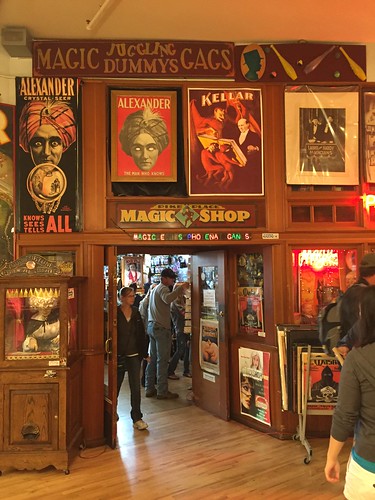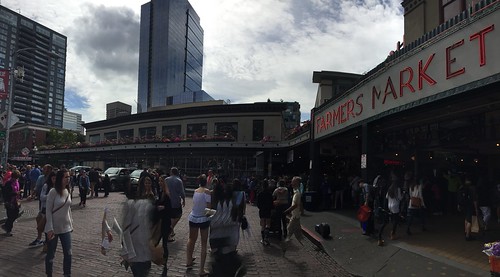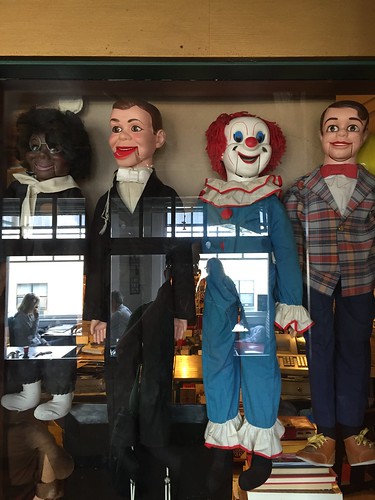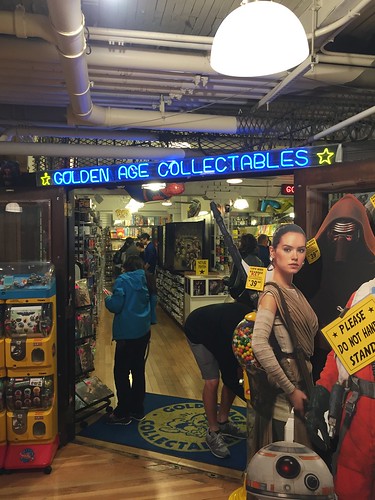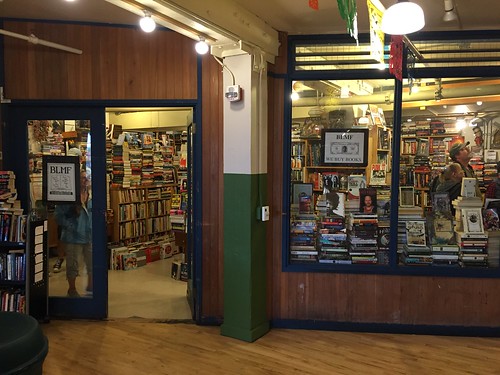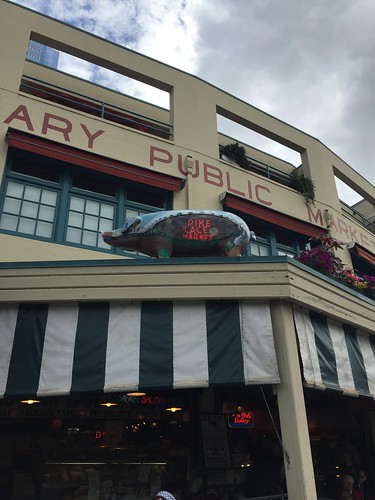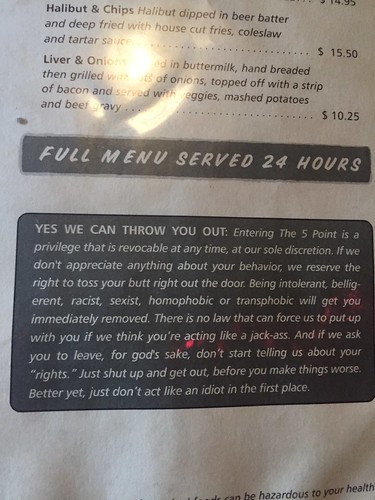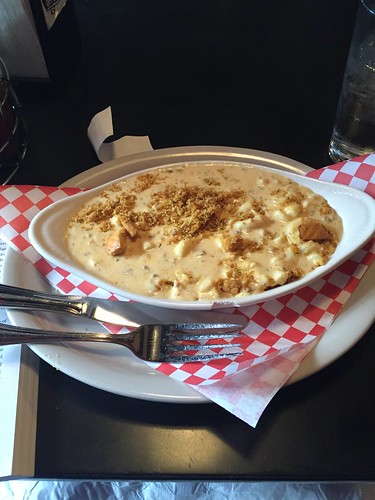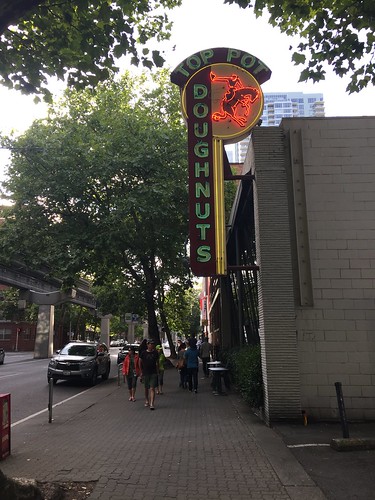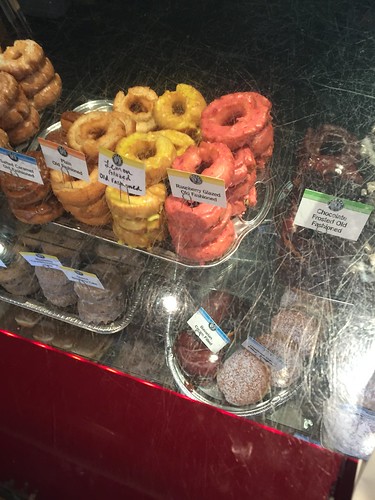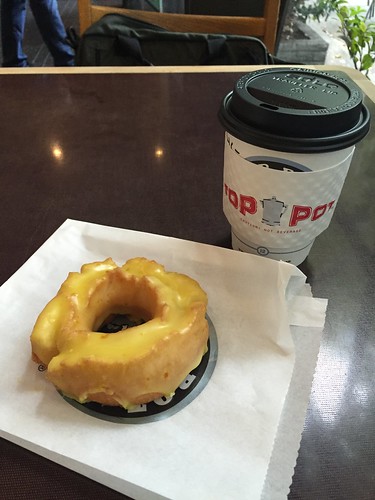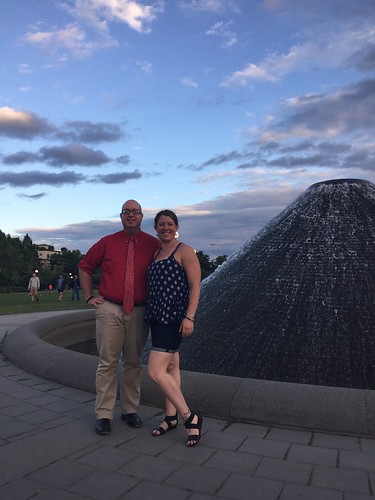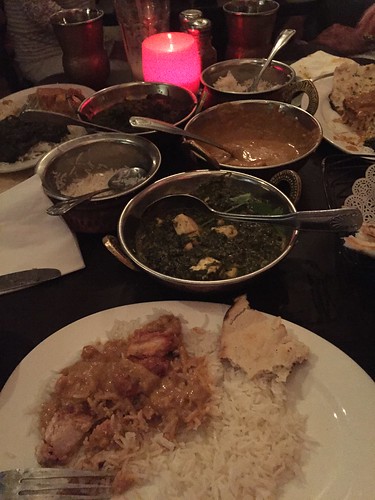Since June is Pride Month, I decided to tailor my reading list a little bit, and only read books with some gay-related content for the month. I had plenty of physical books in my "to be read" stacks that covered that, so I didn't have to go buy any, but I ran into a little bit of trouble when I decided to order a few extras for my Kindle. Since I was also going to be on vacation in June, I didn't want to finish a Kindle book without another one ready, so I decided to look for a few.
That's when I learned that if you type "gay male romance" into the search field on Amazon, every result will sound like a bad porno. For example:
Innocent Until Stiff
Blackmail Boy
Gay Rebel
Possibly I am misjudging what could be profoundly moving works of great depth and substance, but in reviewing the titles and cover shots on the list I really felt like maybe these weren't quite what I was looking for. I did eventually decide on a few other books for my Kindle (I only finished two of them, since I walk outside more than I do on the treadmill when it's warm, and I only read the Kindle on the treadmill), but doing so meant refining my search categories just a bit.
At any rate, here's what I read to celebrate Pride Month:
1) The humor of Robert Rodi's
Bitch Goddess is almost destroyed by the way the novel is written. The whole story, about the rise and fall and rise and fall and possible rise again of 70s B-movie starlet Viola Chute, is told in the form of interviews, letters, magazine articles, voicemails, email transcripts, holiday cards, movie and television scripts, etc., which made reading it very, very slow. It's not just Viola's story, but also the story of how her gay ghostwriter, Harry, tries to unravel the truth behind the narrative that she's crafting for the public, and while it manages to be funny at times the structure really does pull it down.
I felt bad for not liking this, because I've read other books of his and really enjoyed them, but it really was an issue of the form, not the content.
2) Sometimes I search too many things on Amazon too close together, and it starts recommending things for me that are weird blends of things I was looking for. A few months ago, I spent about a week looking up books related to colleges and residence life, and then the next week I was searching a lot of LGBT books because someone forwarded me a list of the best of LGBT literature, and then the week after that, Amazon recommended A.R. Barley's
Out of Bounds, a book about two gay guys trying to ignore smoldering sexual tension in their dorm room as they grow closer and closer together but try to maintain the boundary down the middle of their room.
And yes, that includes a scene where they watch each other masturbate from opposite sides of the tape.
I remembered this when I was trying to find Kindle books, so I though,
"What the hell? I've read some real garbage before. How bad could it be?" The plot was pretty clichéd, in terms of a romance novel, which I guess is sort of cool since it was just as hackneyed as the old Harlequin bodice-rippers that my Nanny Maggie used to plow through over beer and cigarettes. The writing wasn't terrible, but there were numerous times when I read something and thought,
"Wait, a student gay-bashed him on campus and there wasn't a judicial hearing? Wait, why is the other kid still in school? He's not suspended? Isn't anybody from the counseling center going to follow up with this kid and make sure he's ok? Why is the RA in charge of room changes? Where's the hall director? This must be the worst university ever." Since I read this on the treadmill, there were also a few moments when I hoped and prayed the people working out next to me would not glance over. I don't know what romance novels for straight people are like now, but this was pretty graphic.
I enjoyed reading this, but more out of amusement than titillation.
3) When he was a teenager, Congressional advisor Joel Lingeman saw a men's swimsuit ad in the magazine "Man About Town" (which is also the title of
this novel by Mark Merlis) that shocked him into the realization that he was gay. Now, years later, Joel is still haunted by the boy in that advertisement, and thinks of it more and more often in the days after his partner of 15 years leaves him for a 23 year old, after he discovers that the gay dating scene has moved on without him and he may as well be invisible to the guys that he's so attracted to, and after he's required at work to help draft an amendment that would remove Medicaid from patients with HIV. Feeling everything sliding away from him, Joel decides to track down the boy from the swimsuit ad, as if answering the question of what happened to that boy can also answer the question of what's happened to Joel.
This was a good book, but also a little sad, and that's the problem I had with a few of the books I read this month and with a lot of queer literature in general: being gay almost always means being tragic. I get super excited when there's a gay book with a happy ending because I read them so rarely.
4) Alison Bechdel's
Fun Home is described on the cover as a "family tragi-comic" and that's the best description I can think of. It's kind of tragic, kind of funny, and also entertaining. It tells the story of Bechdel's father, a historian who obsessively restored their family home after also inheriting the family funeral home business (the "fun home" of the title), and who also spent his life as a closeted gay man carrying on a string of homosexual affairs with her mother's knowledge. Later in life, after he is killed or maybe killed himself (Bechdel is unsure), she tries to figure out her relationship with her father, her mother, and herself in light of the secrets she finds out along the way.
At some points the comic is a little graphic, in that there are human genitals, depictions of sex, etc., which is probably why this tends to meet with pushback and outrage when it gets assigned in schools and colleges. God forbid we tell high schoolers and college kids that people have sex, or that gay people are also human beings.
5) I knew some of the story of Jill Lepore's
The Secret History of Wonder Woman, but she covers it in much more depth through interviews and access to family diaries, photo albums, and other papers. This story isn't really about Wonder Woman, though, but is instead mostly a biography of Dr. William Moulton Marston, Wonder Woman's creator, and his family, which consisted of four children with two different women. All three parents lived together with a third woman, multiple adults in the household had college degrees, one of the women was the niece of birth control pioneer Margaret Sanger, and Marston created the character and guided the early stories in an attempt to portray women as equal to, and the eventual rulers of, men. Marston also, randomly enough, invented the polygraph machine.
Lepore tells the story of the family and the creation of the character against the backdrop of the women's suffrage and then women's equality movements, and includes both an epilogue and, in the paperback (and, I assume, e-book) editions an afterword. I guess this didn't technically have any outright gay content, but it was about non-traditional family structures, and Marston's wife and mistress lived together for the rest of their lives even after he died.
6) Josh Kilmer Purcell's
Candy Everybody Wants tried too hard to be funny, quirky, and in any way worth reading, and turned out to just be a bland waste of time. It tells the story of Jayson, a gay high school freshman in the early 1980's who knows he's destined to be famous if he can just get out of Wisconsin, and his extended cast of whacky family members who get him into whacky situations as he tries to land a job on a sitcom starring comedy legend Helen Lawson (who is actually a character from another novel; she's a Broadway diva in the book and film versions of Jaqueline Susann's
Valley of the Dolls).
I'm kind of sad I spent a day reading this, because it was a vapid waste of my time without even being entertaining about it.
7) My friend Leo sent me
Girls Who Like Boys Who Like Boys, and I found it pretty enjoyable. It's a collection of essays from men and women about the relationship between gay men and their female friends and families, and covers a wide range of ages, races, and socioeconomic levels. There's a lot in here that I identified with, and some of the stories were really touching. At the same time, though, I have to wonder if they put Ayelet Waldman's essay last because she's so insufferable that they were afraid that people would stop reading the book before they finished if she was first.
A couple of thoughts on this book:
a) This was a super fun book to smack down on my table while eating alone at Cracker Barrel in the middle of Virginia. My server stared at it with eyes as wide as the MoonPies in the Cracker Barrel store. You never saw food come out of the back so fast or a check come so quickly without anyone asking me if I wanted dessert.
b) I realized while reading this that I don't really have a lot of straight male friends that I socialize with regularly. My social group here in Knoxville is mostly women and gay guys, to the point that when we went out for my friend's birthday a few weeks ago, there were over a dozen people at the table and all of them liked dating boys even though only three of them were female. All of the straight male friends that I see regularly are either people I work with or people who are married to my female friends, and it made me kind of wonder if I need to widen my social circle. I mean, what if someday I wanted to go to a strip club for something? Who would I go with?
8) Matthew Griffin's
Hide is a touching, sad love story. Wendell and Frank have lived together outside of town for decades, cut off from their families and not having any friends. They don't leave the house together, keep separate mailing addresses, and never reveal to anyone in their tiny southern town that the two of them are lovers. That all changes when Frank suffers a stroke in the garden, and his recovery and deterioration forces them to confront all of the things they gave up to be together in a time when doing so was illegal.
I don't think this was annoyingly sad in the way I was complaining about above, though, because the sadness here is more from the oppression of society. The characters in the book were able to build a life despite that, but they could have been so much more happy if the world wasn't such a terrible place to people who are different.
9) I don't remember if the narrator said at the beginning of Garth Greenwell's
What Belongs to You that it would end sadly or if it was just obvious all along, but by the end of the story everything felt very expected and inevitable. That may have been the point, though, as there was no way that the story of a male American teacher living in Bulgaria and falling in love with a homeless male prostitute was going to end happily. Along the way, the narrator examines and tries to understand his own life, but understanding the prostitute, Mitko, that he falls in love with remains stubbornly beyond his reach.
This was the other Kindle book I finished this month.
I haven't really determined a theme for July yet. I'm thinking of just shuffling a few stacks of unread books and reading the first thing off of the pile.
